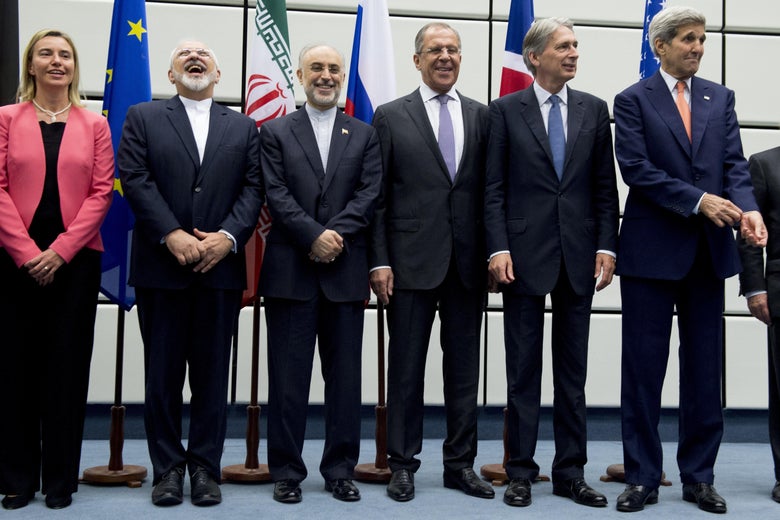
File photo- The Iran nuclear deal, also known as the Joint Comprehensive Plan of Action, signed in July 14, 2015
Since the Joint Comprehensive Plan of Action (JCPOA), or the 2015 Iran nuclear deal as it is known, took effect, many have been concerned about the Iranian regime’s compliance. The nuclear deal is already quite ambiguous in certain parts and the deal is very one-sided in the Iranian regime’s favor, especially when it comes to inspections of nuclear facilities.
On Saturday 25th January, the deputy chief of the country’s nuclear agency said that the regime’s stockpile of enriched uranium has now reached 1200 kilograms. Ali Asghar Zarean did not state the level of purity that this enriched uranium has.
There is no doubt about this being a violation of the JCPOA which allows Iran to hold no more than 300 kilograms of enriched uranium.
#Iran Nuclear Deal: European Signatories Trigger Dispute Mechanism https://t.co/OtOiTzYvuh#Irannucleardeal #IranDeal @USAdarFarsi
— MEK Iran (Mujahedin-e Khalq) (@MEK_Iran) January 15, 2020
The Iranian regime announced recently that it would take steps to reduce its commitment to the deal. This was a bid for the remaining signatories of the deal to give Iran incentives to remain compliant. In other words, it was a way for the Iranian regime to blackmail the other signatories into giving the regime what it wanted.
This latest move is related to the regime’s so-called “fifth step”, or fifth blatant breach of the deal.
The European powers, although reluctantly, did trigger the United Nations dispute mechanism. Because of this, UN sanctions on the regime will snap back.
When it was announced that the dispute mechanism had been triggered, the EU diplomat Josep Borrell extended the timeline for discussion to save the nuclear deal. This move was considered negatively by many politicians around the world who viewed any concession to the mullahs, will embolden and encourage them to further their nuclear ambitions.
The #Iran Regime took the final step away from the #JCPOA; it will remove limits on centrifuges, uranium enrichment, and nuclear research and development.https://t.co/i5QE0RHYSH#MEK @USAdarFarsi pic.twitter.com/33zEZ5hF4t
— MEK Iran (Mujahedin-e Khalq) (@MEK_Iran) January 7, 2020
Particularly, since the Iranian regime has been very fearful of sanctions coming back into force because it is in an extremely weak position. It is facing increasing pressure from the international community, especially after the Ukraine International Airlines flight was shot down by the Islamic Revolutionary Guard Corps (IRGC). It is also facing a huge amount of dissent at home, with major protests continuing across the country. Particularly due to the ongoing activities of the Mujahedin-e Khalq (MEK) Resistance Units that breaks through the reign of intimidation and inspire the protesters in Iran.
Regime officials have swallowed their pride and admitted that they cannot afford sanctions to return and Iranian President Hassan Rouhani pleaded with the European Union to avoid taking further steps, emphasizing that the regime does not seek a nuclear weapon.
However, we have seen time and time again that the regime cannot be taken at its word. It can say that it has no malign intentions but all evidence points to the contrary, and the recent announcement is a proof of that.
Iranian regime’s belligerence is a major issue that needs to be addressed and the nuclear deal is the opportunity to force it into changing some of its foreign policy.
Bob Blackman, MP:
We should be saying, let us get some action on what we want to see happen in #Iran. I opposed the nuclear deal with Iran. We are giving the mullahs the opportunity to create nuclear weapons, and they will use such an opportunity to destabilize the world.#MEK pic.twitter.com/dDD8acUaYF— MEK Iran (Mujahedin-e Khalq) (@MEK_Iran) October 17, 2019
While the regime spends billions of dollars per year on its nuclear weaponry programs and its terrorism-related activities, the people of Iran are falling further and further into poverty. The people who are peacefully protesting are being arrested, thrown into jail, beaten and killed. Foreign governments must not forget this.
